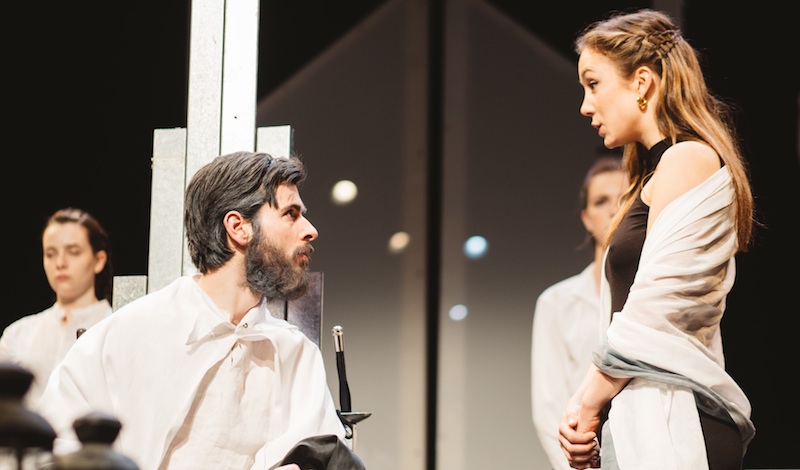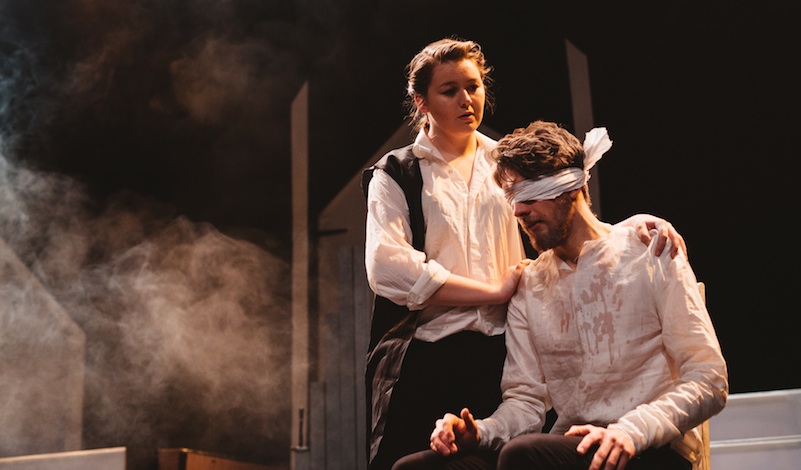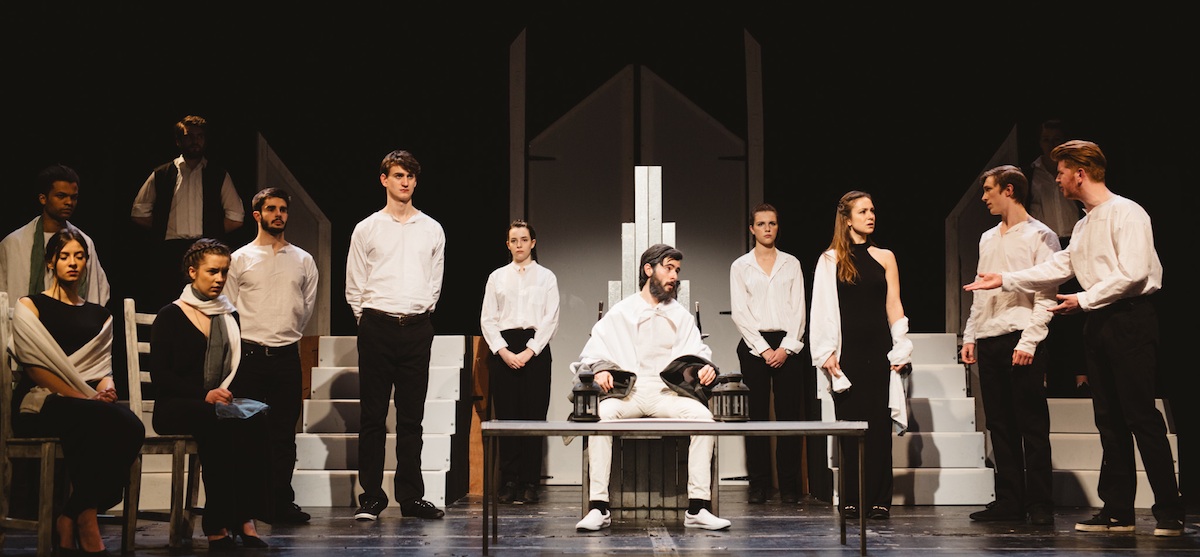King Lear
★★★☆☆ Sound
Pleasance Theatre: Tue 1 – Sat 5 March 2016
Review by Thom Dibdin
There is a real clarity of purpose about the Edinburgh University Shakespeare society’s production of King Lear, at the Pleasance Theatre all this week.
If the clarity doesn’t always extend to the delivery of the lines, their meaning – along with the political machinations which drive them – is always out front, in an unfussy production which strives for a bit more than it achieves.
Director Henry Conklin brings out a string of solid performances, notably from Will Fairhead as Lear and those playing the older characters: Ben Schofield as the Earl of Gloucester and Tom Stuchfield as the Earl Of Kent.
All three play the ages of their characters well, taking on the cloak of age with easy naturalism. While around them the impetuousness of youth drives wedges between the purpose of their elders’ desires and the reality of the actions leading from their fruition.
Fairhead’s Lear is driven by his desire to bless his three beloved daughters with their inheritance and live to see them and their husbands unite the country in a peaceful alliance.
Yet the madness which is creeping up on him comes niggling through, allowing him to cast out his favourite, the youngest Cordelia – a brilliant Marina Windsow, along with the faithful Kent.
wilful blindness
Lear’s almost wilful blindness to the political enmity around him leaves him with his two elder daughters, Goneril and Regan married to Cornwall and Albany, forming an unholy alliance against him, reducing him and his house in stature as a lame-duck King.
Gloucester’s troubles come through his inability to see through the Machiavellian scheming of his youngest son, the illegitimate Edmund, who unjustly frames his older brother Edwin, for plotting to overthrow their father.
Schofield finds a very necessary clarity to his delivery as Gloucester, ensuring that the early exposition is easy to comprehend. He’s helped tremendously by Oliver Huband who makes Edmund a compelling, fully-rounded character. It’s easy to see why he schemes are such a success, and his relationships with both Goneril and Regan.
The beautifully simple set, well lit, austere and angular with a commendable lack of tricksy backdrops of projections, serves the production very well indeed. It is a framing device for the action, rather than a true representation of place, although Conklin could make more of his dynamic use of its heights.
One of the real benefits of such a set is to force the emphasis onto the text. Unfortunately not all the company are equal to the demands, with Agnes Kenig really needing to find more power and enunciation as Regan. Still, this can be easily rectified with a bit of work and would allow her to concentrate more on developing the character.
Rather less forgivable is the blurring which occurs as the madness begins to take hold of Lear. With Pedro Leandro making the most of his role as the Fool – and working the most punningly vulgar lines to the max – the incoherence of Lear’s torrents of rage and the shouts of the madman “Tom” – Edgar in disguise – appear even more incongruous.
To be fair to the players, while what is being actually said might not be audible, the general tenor of it certainly is. And Macleod Stephen otherwise does an excellent job as Edgar, bringing several different shades to the character who is forced to lead his blinded father around by the hand.
Nor are the company aided in any way by the thunderous soundscape which sounds most like a broken bass-bin 1990s rave. Indeed, when it first starts up, it sounds a disco had started up in a nearby and un-soundproofed room.
But above all, King Lear is about age and growing old and the pressures of succession – whatever your status. And this young company succeed in bringing out the issues for all ages, and giving them a strong and thoughtful airing.
Running time: 3 hours
Pleasance Theatre, The Pleasance, EH8 9TL.
Tuesday 1 – Saturday 5 March 2016
Daily: 7.30pm.
Tickets from: www.sparkseat.com
EUSC on Facebook: EUShakespeare
EUSC on Twitter: @EdUniShakeSoc
ENDS





















